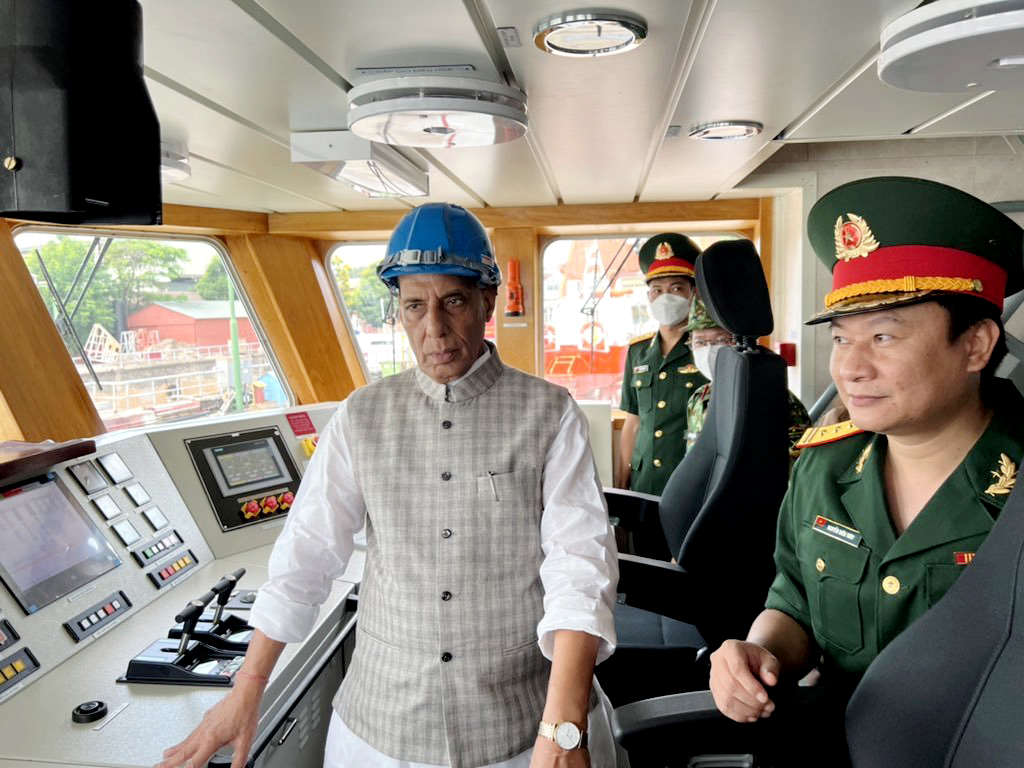New Delhi: With the threat of China’s assertive and aggressive agenda looming large over the Indo-Pacific and other geographies of the world, India has started ramping up diplomatic and defence engagement with the ASEAN, a bloc consisting of 10 countries including the ones that are also facing problems due to Beijing’s belligerence. After the BrahMos deal with Philippines, India’s hectic diplomatic engagement with Vietnam followed by the steps to increase major defence cooperation with Hanoi is being viewed as a signal about Prime Minister Narendra Modi’s larger strategic plan to reach out to the ASEAN nations more frequently in the future, with the key goal of dealing with China in the Indo-Pacific region and other geographies. Highly-placed diplomatic sources told The Sunday Guardian that PM Modi has reminded India’s Quad partners—the US, Australia and Japan—to focus more on “ASEAN centrality” that the Quadrilateral Security Dialogue remains committed to. In all his bilateral engagements in the past, PM Modi told the leaders of the Quad countries that when the forum talks about “ASEAN centrality” for free and open Indo-Pacific, there should always be action to ensure that, sources added. As a result, the Biden administration in the US has repeatedly mentioned the notion of “ASEAN centrality”, while discussing Asia and the Indo-Pacific, officials said. Japanese Prime Minister Fumio Kishida, at an event in Singapore, underlined the importance of ASEAN in the Indo-Pacific in terms of keeping it open and free. Diplomats see this as a result of PM Modi’s consistent effort to persuade the Quad partners to keep their focus on engaging ASEAN nations, with China in mind.
On its part, India is sparing no effort to up ASEAN outreach with a two-pronged strategy. One, India is developing deeper ties in various sectors with these countries bilaterally. Two, New Delhi’s outreach to the ten-nation bloc is aimed to tackle the Chinese challenges. In what augurs well for this strategy of India, Vietnam is going to be another ASEAN country after the Philippines, which is looking at buying BrahMos supersonic missile. Sources said that Defence Minister Rajnath Singh’s visit to Hanoi has given fillip to efforts to boost ties between India and Vietnam. Singh met his Vietnamese counterpart, General Phan Van Giang, during which they agreed on early finalisation of the $500 million defence line of credit extended to Vietnam. Diplomatic sources see it as a great step towards strengthening defence ties between the two nations. “The defence ties will show impact in the maritime domain where China flexes its muscles in the South China Sea. China has territorial disputes with Vietnam in the region,” sources said.
Top diplomatic sources said that the upcoming ASEAN-India Foreign Ministers’ Meeting (SAIFMM) being hosted by New Delhi on 16-17 June will also be a stronger message to China. “The development of the Indo-Pacific region is likely to be on the agenda of discussion,” sources added.
India has been holding political consultations and strategic dialogue with Vietnam. Recently, Saurabh Kumar, Secretary (East) co-chaired the political consultations while the strategic dialogue was held between the Foreign Ministers of the two countries. Sources said that India considers Vietnam a major player in its plan to deal with China, and the interactions covered it as well. During a phone call with Nguyen Phu Trong, General Secretary of the Central Committee of the Communist Party of Vietnam, PM Modi referred to the South China Sea, which Hanoi calls the East Sea. Both the leaders agreed on the need to maintain peace, stability, and respect for international law, including the 1982 United Nations Convention on the Law of the Sea, giving due regard to sovereignty and sovereign rights of all the countries and freedom of aviation and navigation.
Undeniably, India and Vietnam both have troubled relations with their mutual neighbour—China. Vietnam and other ASEAN nations agree that the threat of China is looming large for them. Diplomats see that in view of the Chinese threat, India’s bilateral ties with many of them will gain traction on diplomatic, economic and defence fronts.
India’s wider ASEAN outreach is strong message to CHINA
- Advertisement -

